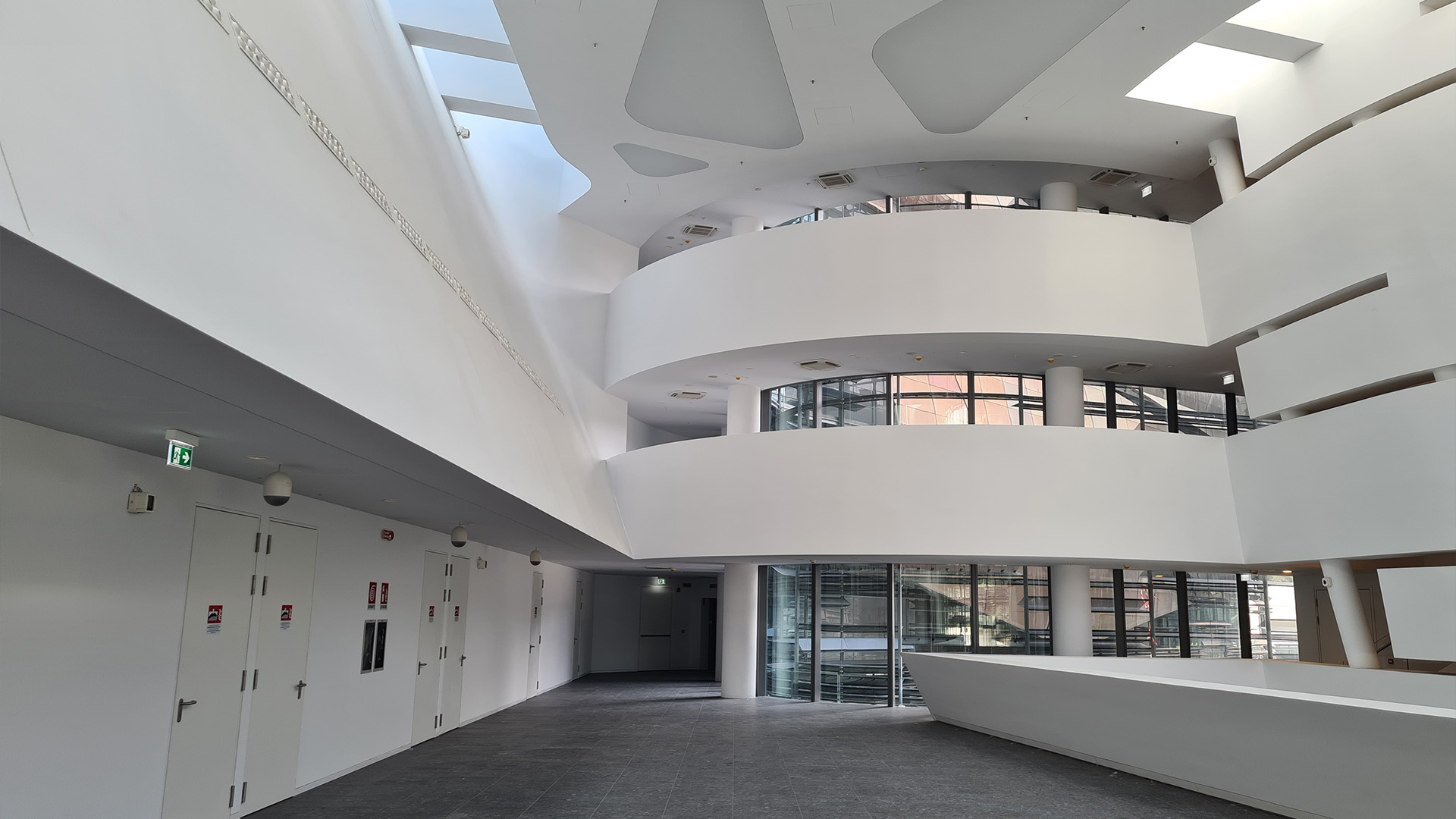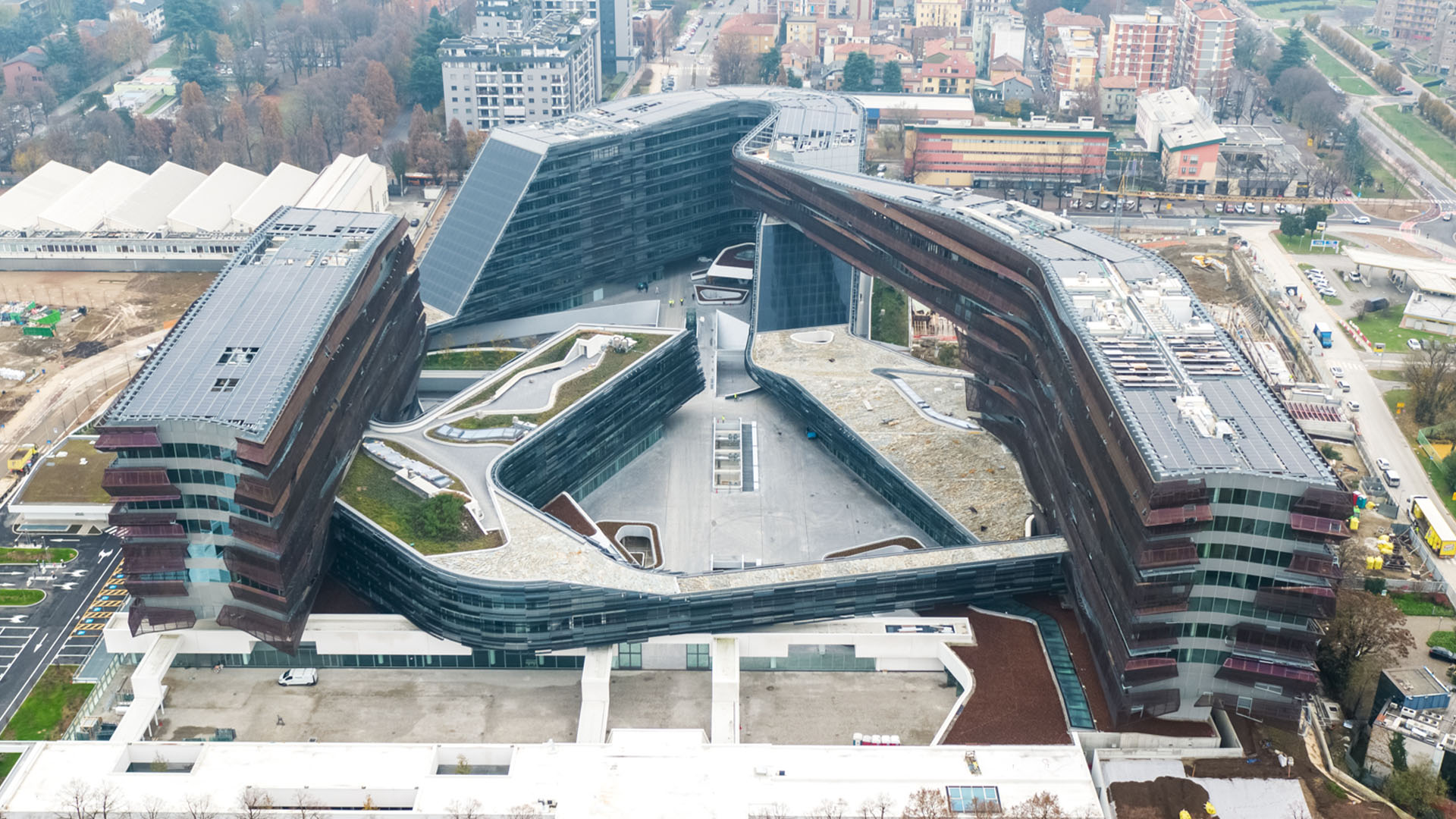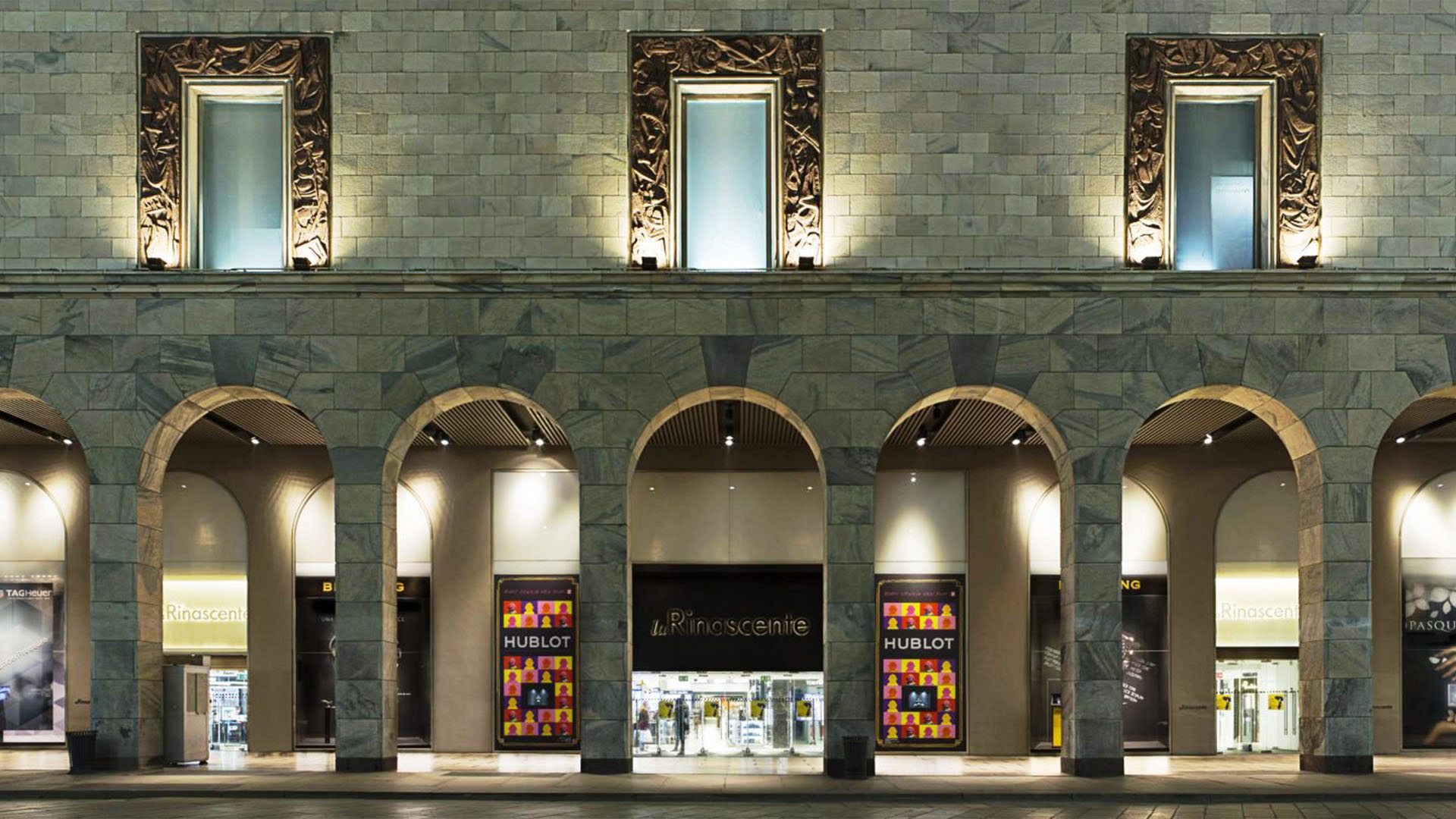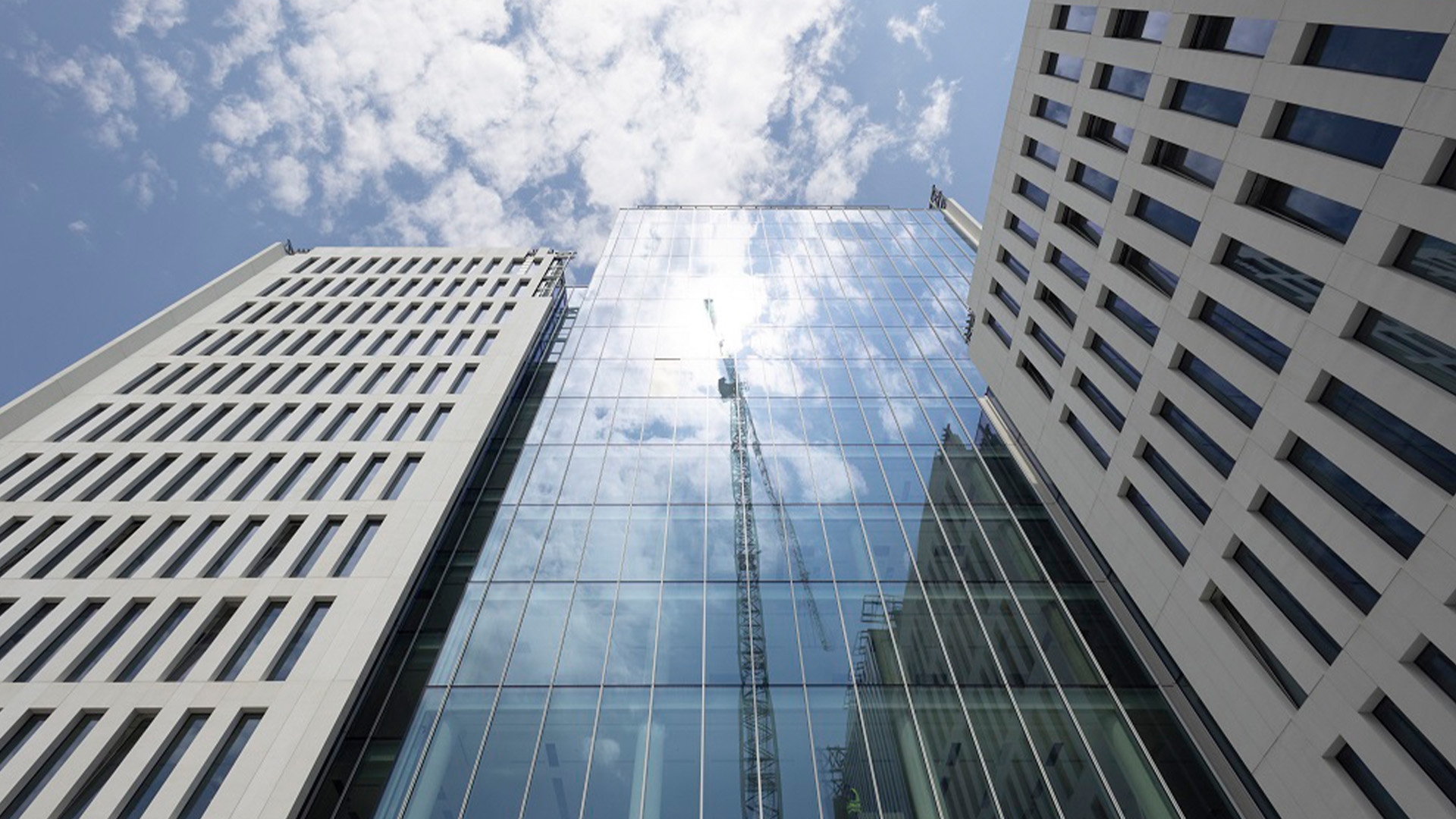 Credit: DeA Capital
Credit: DeA CapitalStrategic Growth in Europe and the Middle East with Paul Sacco, DeA Capital RE
Exclusive GRI interview with DeA Capital’s Head of International Capital Raising reveals insights for European and GCC real estate
July 24, 2025Real Estate
Written by:Rory Hickman
With recent news of DeA Capital Real Estate expanding to the Middle East, and ahead of his participation in the GRI Institute's upcoming Europe GRI 2025 in Paris and the GRI Global Summit 2025 in Abu Dhabi, we had the pleasure of speaking with the company’s Head of International Capital Raising & Investor Relations, Paul Sacco.
DeA Capital Real Estate is a leading Italian investment manager with a strong pan-European presence, managing EUR 12.2 billion in AUM across 51 real estate vehicles and over 670 properties, as well as offering the invaluable insights of 180 local experts.

As a seasoned professional with experience spanning Europe, the Middle East, and the broader international capital raising sector, Paul shares insights on DeA’s current approach to international growth, strategic partnerships, and sustainability.
In this conversation, Paul provides valuable perspectives on navigating macroeconomic uncertainty, investor sentiment, and the growing focus on ESG within the real estate sector, while also delving into the future of cross-border fundraising and the importance of long-term partnerships in driving growth.
Hi Paul, could you please give us a brief overview of DeA Capital Real Estate’s positioning in the market and your own professional journey leading up to your current role?
DeA Capital Real Estate is the leading real estate investment manager in Italy, managing around EUR 12 billion in assets across 51 vehicles and more than 670 properties. We operate across the real estate spectrum - core, value-add, and opportunistic - with deep roots in Italy, Spain, France, Poland, and Germany.
What distinguishes us is our ability to combine strong local execution with institutional governance and operational excellence. We have built an integrated platform with local teams, operational capabilities, and a long-term mindset.
Personally, I’ve spent the past decade building international capital raising platforms across Europe and the Middle East. Before joining DeA Capital, I held leadership roles at Knight Frank, where I became Partner, and at Real Asset Partners, where I co-launched their presence in the DIFC in Dubai and began my career in investment banking.
My background spans cross-border deal structuring, joint venture formation, and strategic fundraising, all of which align with DeA’s ambitions for international growth.
Today, my focus is on building long-term institutional relationships. In the Middle East, for example, we are not looking to deploy capital into assets but rather to raise capital and form lasting partnerships with regional investors aligned with our European strategy.

How would you describe DeA's international growth story so far, and what are the underlying principles driving that expansion today?
Our international growth has been deliberate, strategic and is platform-led. We’ve built physical presence, operational capability, and strategic partnerships in each core market.
We’re not chasing scale for its own sake, we’re entering markets where we can bring something differentiated. The guiding principles behind our expansion are discipline, alignment with long-term capital, and a strong focus on downside protection.
Today, the international platform is not just a growth engine, it’s a diversification tool for both us and our investors. We’ve built real substance: teams, offices, and partners that allow us to execute locally with confidence.
At the same time, ESG (Environmental, Social, & Governance) is not a bolt-on, it’s a central pillar of this growth. We integrate ESG criteria at both underwriting and asset management levels, with 17 AIFs now under Article 8 and several funds under Article 9 of SFDR.
From decarbonisation roadmaps to stakeholder engagement plans, we apply ESG as a value creation and risk mitigation framework. Our expansion is therefore not only geographic, but also strategic - embedding sustainability and resilience into everything we do.
DeA has made significant strides in broadening its European footprint. What has shaped your approach to entering new markets such as France, Spain, and Poland?
Everything is grounded in strategic JVs and local partnerships. We build with conviction, not opportunistically. Each market requires its own entry thesis.
In France, we are active in residential sectors, particularly “beds and living.” In Spain, we focus on BTR, PBSA, and debt, leveraging our deep operational expertise. In Poland, we lead with logistics, while in Germany, our efforts centre on industrial.
What shapes our approach is pragmatism: we partner locally, act only when we have a clear competitive advantage, and build slowly but steadily. We’re not tourists in these markets, we aim to be long-term players with boots on the ground.
It was recently announced that DeA is increasing its activity in the Middle East. What does this region represent for your broader international ambitions?
Yes, it was recently in the press, our expansion into the GCC has been a real success. The Middle East is a natural extension of our international strategy. It represents long-term, strategic capital with a growing appetite for European real estate exposure - particularly through tailored co-investment structures.
For us, it’s not just about raising capital; it’s about building partnerships with investors who value alignment, transparency, and long-term value creation. We’re taking a patient, relationship-driven approach, and the early traction has been promising.
Most of our recent conversations confirm that Middle Eastern institutional investors plan to increase their allocations to European real estate this year. GCC sovereign wealth funds, in particular, are sharpening their focus on co-investments and bespoke vehicles that offer both control and upside.
Our growing presence in the region reflects this trend - we’re building real partnerships, not just sourcing capital.

What are you seeing in terms of investor interest and sentiment across the different geographies where DeA operates?
Investors are cautious but not on the sidelines. There's a renewed focus on cash flow visibility, inflation hedging, and asset management alpha. In Southern Europe, we’re seeing strong appetite for logistics and infrastructure, while in Central Europe, investors are looking for opportunistic plays given the repricing dynamics.
Institutional capital is still moving, just more selectively. The flight to quality is real, and managers need to bring more than just access; they need a clear strategy and local execution capabilities.
Looking deeper into 2025, investor sentiment is improving. According to CBRE’s latest Investor Intentions Survey, around 75% of European investors expect a market recovery by year-end.
More than 50% plan to increase allocations to real estate in Europe and the Middle East, up from 35% the previous year. Risk appetite is also recovering - 45% of investors are willing to take on more risk compared to 28% in 2024.
Sustainability continues to drive investment decisions and we feel like investors now consider ESG integration critical, especially for asset retrofitting strategies. This aligns closely with DeA’s sectoral strengths and forward strategy.
With macroeconomic uncertainty becoming almost a certainty, how are your capital raising strategies adapting to shifts in investor priorities and risk appetite?
We’ve become more thematic and solutions-oriented. Investors want clarity and control, so we’ve shifted towards club deals, co-investments, and sector-specific mandates, while still actively raising for discretionary strategies.
We’re also doubling down on communication. Being transparent on underwriting assumptions, business plans, and ESG alignment is more critical than ever. Flexibility and speed of execution are no longer optional, they’re expected.
We’ve placed greater focus on sectors where we have strong capabilities: debt, logistics, hospitality, and living. But the key is adaptability.
We constantly engage with investors to understand their evolving risk appetite, and we regularly map the investor landscape to ensure our strategies remain relevant. This ongoing dialogue is essential to tailoring our offering and maintaining alignment.
ESG continues to be a key focus for institutional capital. How is DeA translating its sustainability ambitions into practical investment frameworks?
We see ESG as integral to long-term value, not a marketing exercise. All our new funds integrate ESG metrics at the underwriting and asset management levels, and we’re working toward full SFDR Article 8/9 compliance across the board.
What matters most is execution: from decarbonising existing buildings to implementing social engagement plans at the asset level. We’ve also launched dedicated impact strategies in sectors like affordable housing and urban regeneration, where ESG is not just a filter, but the core of the investment thesis.
For example, our Article 9 funds are specifically designed to generate measurable positive social and environmental outcomes. These are backed by real implementation: green building certifications, CO2 reduction targets, social KPIs, and transparent disclosures.
ESG is not just an ambition for us, it’s a practical framework that guides investment, management, and reporting.

With such a diversified real estate portfolio, how do you evaluate and balance opportunities in each sector?
We take a barbell approach: on one end, we invest in core, cash-generative assets in sectors like logistics and residential. On the other, we pursue value-add and repositioning plays in underutilised urban assets, particularly in hospitality and office.
Sector allocation is driven by conviction, not fashion. We regularly reassess risk-adjusted returns, liquidity, and operational complexity. And we apply the same underwriting discipline across sectors, regardless of the cycle.
Our Value-Add Fund is a good example: it targets underutilised assets in urban locations with strong upside potential. We’re executing on hotel repositioning or office-to-residential conversions. Everything is benchmarked on returns, risk, and liquidity.
What’s on the horizon for DeA over the next couple of years - and where do you see the greatest potential for long-term impact?
Over the next 24 months, we’re focused on three priorities: accelerating our cross-border fundraising platform, scaling our thematic investment vehicles, and deepening institutional partnerships through tailored programs.
Our AUM is on track for significant growth, driven by new strategies and international expansion. We are actively pursuing the launch of sector-specific and pan-European mandates, while expanding our operating footprint to align with capital flows.
Discretionary strategies remain a key part of our platform; we’re currently launching an innovative pan-European fund to complement our bespoke offerings.
The greatest long-term impact will come from combining our local roots with global capital, giving investors direct access to European markets through high-conviction strategies and fully integrated management capabilities.

With plans to attend Europe GRI 2025 in Paris and the GRI Global Summit 2025 in Abu Dhabi, how would you describe the benefits of GRI Institute membership - and what do you hope to gain from participating in these gatherings?
GRI offers a rare blend of strategic insight and relationship-building. The format allows for honest, off-the-record discussions among peers, which is increasingly valuable in today’s fragmented market environment.
For me, it’s about dialogue over display: understanding where capital is flowing, how investors are thinking, and where collaboration is possible. In both Paris and Abu Dhabi, I look forward to strengthening ties with global capital partners and staying ahead of macro and thematic trends shaping our industry.
The GRI Global Summit in Abu Dhabi was a standout. I reconnected with leading regional investors, exchanged well-articulated views, and laid the groundwork for long-term relationships. It’s more than a conference; it’s a platform for genuine interaction.
GRI membership is, in my view, a wise investment for anyone serious about international capital formation and strategic dialogue.
Thanks for your time Paul!
Be a part of discussions with industry leaders like Paul who are shaping the future of global real estate at the upcoming GRI Institute Summits:
GRI Europe 2025 - Summer Edition - taking place in Paris on September 10th-11th and featuring the GRI Awards Real Estate - Europe 2025 ceremony, this is the premier event for top decision-makers active in the region.
GRI Global Summit 2025 - 300 global leaders, including CEOs, partners, LPs, and GPs from Europe, Asia, the US, and GCC-based sovereign funds, institutions, and family offices, will gather in Abu Dhabi on November 5th for the ultimate convergence of strategy, capital, and insight.
DeA Capital Real Estate is a leading Italian investment manager with a strong pan-European presence, managing EUR 12.2 billion in AUM across 51 real estate vehicles and over 670 properties, as well as offering the invaluable insights of 180 local experts.

(DeA Capital)
As a seasoned professional with experience spanning Europe, the Middle East, and the broader international capital raising sector, Paul shares insights on DeA’s current approach to international growth, strategic partnerships, and sustainability.
In this conversation, Paul provides valuable perspectives on navigating macroeconomic uncertainty, investor sentiment, and the growing focus on ESG within the real estate sector, while also delving into the future of cross-border fundraising and the importance of long-term partnerships in driving growth.
Hi Paul, could you please give us a brief overview of DeA Capital Real Estate’s positioning in the market and your own professional journey leading up to your current role?
DeA Capital Real Estate is the leading real estate investment manager in Italy, managing around EUR 12 billion in assets across 51 vehicles and more than 670 properties. We operate across the real estate spectrum - core, value-add, and opportunistic - with deep roots in Italy, Spain, France, Poland, and Germany.
What distinguishes us is our ability to combine strong local execution with institutional governance and operational excellence. We have built an integrated platform with local teams, operational capabilities, and a long-term mindset.
Personally, I’ve spent the past decade building international capital raising platforms across Europe and the Middle East. Before joining DeA Capital, I held leadership roles at Knight Frank, where I became Partner, and at Real Asset Partners, where I co-launched their presence in the DIFC in Dubai and began my career in investment banking.
My background spans cross-border deal structuring, joint venture formation, and strategic fundraising, all of which align with DeA’s ambitions for international growth.
Today, my focus is on building long-term institutional relationships. In the Middle East, for example, we are not looking to deploy capital into assets but rather to raise capital and form lasting partnerships with regional investors aligned with our European strategy.

(DeA Capital)
How would you describe DeA's international growth story so far, and what are the underlying principles driving that expansion today?
Our international growth has been deliberate, strategic and is platform-led. We’ve built physical presence, operational capability, and strategic partnerships in each core market.
We’re not chasing scale for its own sake, we’re entering markets where we can bring something differentiated. The guiding principles behind our expansion are discipline, alignment with long-term capital, and a strong focus on downside protection.
Today, the international platform is not just a growth engine, it’s a diversification tool for both us and our investors. We’ve built real substance: teams, offices, and partners that allow us to execute locally with confidence.
At the same time, ESG (Environmental, Social, & Governance) is not a bolt-on, it’s a central pillar of this growth. We integrate ESG criteria at both underwriting and asset management levels, with 17 AIFs now under Article 8 and several funds under Article 9 of SFDR.
From decarbonisation roadmaps to stakeholder engagement plans, we apply ESG as a value creation and risk mitigation framework. Our expansion is therefore not only geographic, but also strategic - embedding sustainability and resilience into everything we do.
DeA has made significant strides in broadening its European footprint. What has shaped your approach to entering new markets such as France, Spain, and Poland?
Everything is grounded in strategic JVs and local partnerships. We build with conviction, not opportunistically. Each market requires its own entry thesis.
In France, we are active in residential sectors, particularly “beds and living.” In Spain, we focus on BTR, PBSA, and debt, leveraging our deep operational expertise. In Poland, we lead with logistics, while in Germany, our efforts centre on industrial.
What shapes our approach is pragmatism: we partner locally, act only when we have a clear competitive advantage, and build slowly but steadily. We’re not tourists in these markets, we aim to be long-term players with boots on the ground.
It was recently announced that DeA is increasing its activity in the Middle East. What does this region represent for your broader international ambitions?
Yes, it was recently in the press, our expansion into the GCC has been a real success. The Middle East is a natural extension of our international strategy. It represents long-term, strategic capital with a growing appetite for European real estate exposure - particularly through tailored co-investment structures.
For us, it’s not just about raising capital; it’s about building partnerships with investors who value alignment, transparency, and long-term value creation. We’re taking a patient, relationship-driven approach, and the early traction has been promising.
Most of our recent conversations confirm that Middle Eastern institutional investors plan to increase their allocations to European real estate this year. GCC sovereign wealth funds, in particular, are sharpening their focus on co-investments and bespoke vehicles that offer both control and upside.
Our growing presence in the region reflects this trend - we’re building real partnerships, not just sourcing capital.

(DeA Capital)
What are you seeing in terms of investor interest and sentiment across the different geographies where DeA operates?
Investors are cautious but not on the sidelines. There's a renewed focus on cash flow visibility, inflation hedging, and asset management alpha. In Southern Europe, we’re seeing strong appetite for logistics and infrastructure, while in Central Europe, investors are looking for opportunistic plays given the repricing dynamics.
Institutional capital is still moving, just more selectively. The flight to quality is real, and managers need to bring more than just access; they need a clear strategy and local execution capabilities.
Looking deeper into 2025, investor sentiment is improving. According to CBRE’s latest Investor Intentions Survey, around 75% of European investors expect a market recovery by year-end.
More than 50% plan to increase allocations to real estate in Europe and the Middle East, up from 35% the previous year. Risk appetite is also recovering - 45% of investors are willing to take on more risk compared to 28% in 2024.
Sustainability continues to drive investment decisions and we feel like investors now consider ESG integration critical, especially for asset retrofitting strategies. This aligns closely with DeA’s sectoral strengths and forward strategy.
With macroeconomic uncertainty becoming almost a certainty, how are your capital raising strategies adapting to shifts in investor priorities and risk appetite?
We’ve become more thematic and solutions-oriented. Investors want clarity and control, so we’ve shifted towards club deals, co-investments, and sector-specific mandates, while still actively raising for discretionary strategies.
We’re also doubling down on communication. Being transparent on underwriting assumptions, business plans, and ESG alignment is more critical than ever. Flexibility and speed of execution are no longer optional, they’re expected.
We’ve placed greater focus on sectors where we have strong capabilities: debt, logistics, hospitality, and living. But the key is adaptability.
We constantly engage with investors to understand their evolving risk appetite, and we regularly map the investor landscape to ensure our strategies remain relevant. This ongoing dialogue is essential to tailoring our offering and maintaining alignment.
ESG continues to be a key focus for institutional capital. How is DeA translating its sustainability ambitions into practical investment frameworks?
We see ESG as integral to long-term value, not a marketing exercise. All our new funds integrate ESG metrics at the underwriting and asset management levels, and we’re working toward full SFDR Article 8/9 compliance across the board.
What matters most is execution: from decarbonising existing buildings to implementing social engagement plans at the asset level. We’ve also launched dedicated impact strategies in sectors like affordable housing and urban regeneration, where ESG is not just a filter, but the core of the investment thesis.
For example, our Article 9 funds are specifically designed to generate measurable positive social and environmental outcomes. These are backed by real implementation: green building certifications, CO2 reduction targets, social KPIs, and transparent disclosures.
ESG is not just an ambition for us, it’s a practical framework that guides investment, management, and reporting.

(DeA Capital)
With such a diversified real estate portfolio, how do you evaluate and balance opportunities in each sector?
We take a barbell approach: on one end, we invest in core, cash-generative assets in sectors like logistics and residential. On the other, we pursue value-add and repositioning plays in underutilised urban assets, particularly in hospitality and office.
Sector allocation is driven by conviction, not fashion. We regularly reassess risk-adjusted returns, liquidity, and operational complexity. And we apply the same underwriting discipline across sectors, regardless of the cycle.
Our Value-Add Fund is a good example: it targets underutilised assets in urban locations with strong upside potential. We’re executing on hotel repositioning or office-to-residential conversions. Everything is benchmarked on returns, risk, and liquidity.
What’s on the horizon for DeA over the next couple of years - and where do you see the greatest potential for long-term impact?
Over the next 24 months, we’re focused on three priorities: accelerating our cross-border fundraising platform, scaling our thematic investment vehicles, and deepening institutional partnerships through tailored programs.
Our AUM is on track for significant growth, driven by new strategies and international expansion. We are actively pursuing the launch of sector-specific and pan-European mandates, while expanding our operating footprint to align with capital flows.
Discretionary strategies remain a key part of our platform; we’re currently launching an innovative pan-European fund to complement our bespoke offerings.
The greatest long-term impact will come from combining our local roots with global capital, giving investors direct access to European markets through high-conviction strategies and fully integrated management capabilities.

(DeA Capital)
With plans to attend Europe GRI 2025 in Paris and the GRI Global Summit 2025 in Abu Dhabi, how would you describe the benefits of GRI Institute membership - and what do you hope to gain from participating in these gatherings?
GRI offers a rare blend of strategic insight and relationship-building. The format allows for honest, off-the-record discussions among peers, which is increasingly valuable in today’s fragmented market environment.
For me, it’s about dialogue over display: understanding where capital is flowing, how investors are thinking, and where collaboration is possible. In both Paris and Abu Dhabi, I look forward to strengthening ties with global capital partners and staying ahead of macro and thematic trends shaping our industry.
The GRI Global Summit in Abu Dhabi was a standout. I reconnected with leading regional investors, exchanged well-articulated views, and laid the groundwork for long-term relationships. It’s more than a conference; it’s a platform for genuine interaction.
GRI membership is, in my view, a wise investment for anyone serious about international capital formation and strategic dialogue.
Thanks for your time Paul!
Be a part of discussions with industry leaders like Paul who are shaping the future of global real estate at the upcoming GRI Institute Summits:
GRI Europe 2025 - Summer Edition - taking place in Paris on September 10th-11th and featuring the GRI Awards Real Estate - Europe 2025 ceremony, this is the premier event for top decision-makers active in the region.
GRI Global Summit 2025 - 300 global leaders, including CEOs, partners, LPs, and GPs from Europe, Asia, the US, and GCC-based sovereign funds, institutions, and family offices, will gather in Abu Dhabi on November 5th for the ultimate convergence of strategy, capital, and insight.